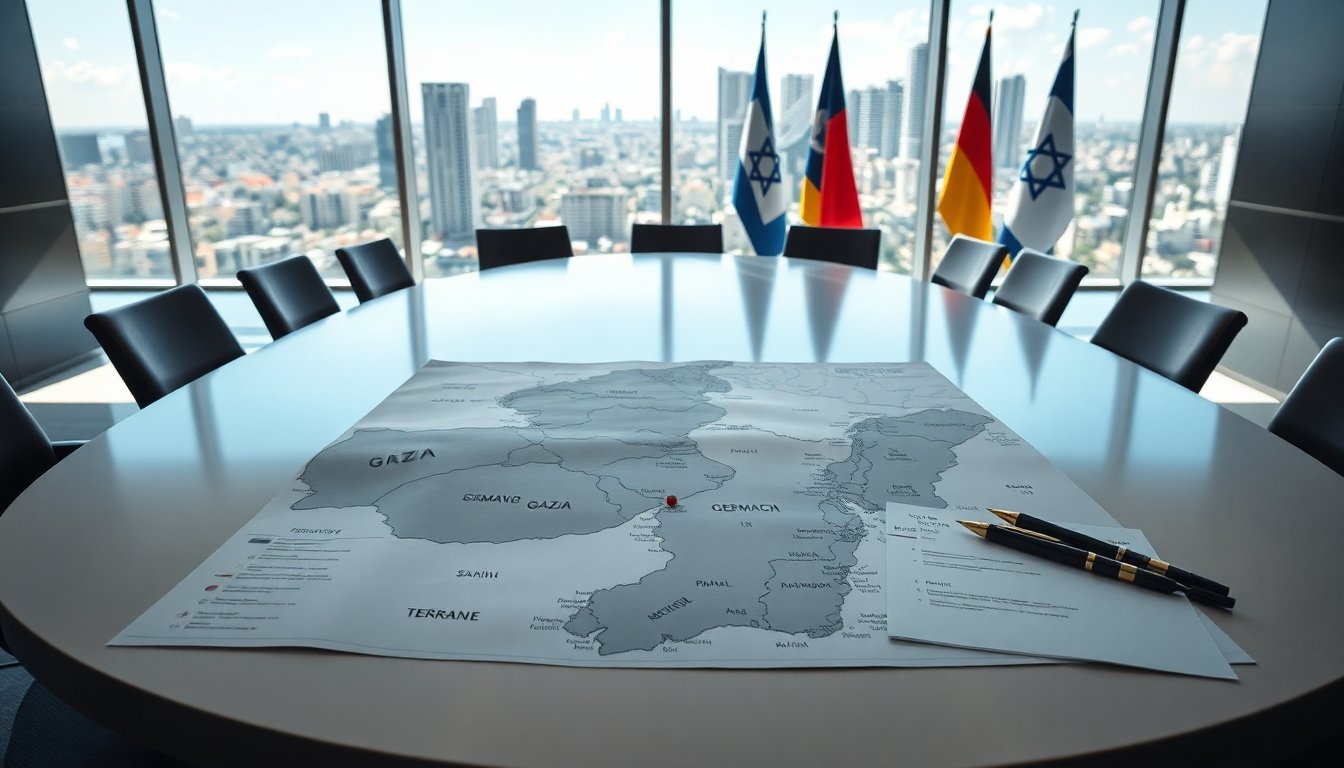Table of Contents
Two years after the tragic events of October 7, which resulted in the loss of approximately 1,200 lives, German Foreign Minister Johann Wadephul has shared his thoughts on the ongoing conflict in Gaza. In a recent interview conducted in Tel Aviv, he emphasized the potential for a ceasefire, the release of hostages held by Hamas, and increased humanitarian aid, predicting that a resolution could be reached within a week.
Wadephul’s comments came during discussions with his Israeli counterpart, where he refuted accusations made by Prime Minister Benjamin Netanyahu. The Prime Minister had claimed that Europe was failing to contribute to a resolution of the conflict and had capitulated to what he termed Palestinian terrorism. Wadephul countered by underscoring the significant role of Europe in the peace process, noting the influence of both the United Kingdom and France as permanent members of the U.N. Security Council.
Europe’s diplomatic engagement
Wadephul outlined his active diplomatic efforts, revealing that he had conversations with key Qatari officials, who maintain vital communication with Hamas. His itinerary included a trip to Cairo to meet with the Egyptian foreign minister, furthering his commitment to mediation. He stated, “As a foreign minister, my responsibility lies in fostering dialogue, exchanging viewpoints, and building connections. I remain hopeful that these efforts will yield positive outcomes, although success is never guaranteed.”
Reflections on solidarity
Reflecting on Germany’s response to the attacks, Wadephul expressed disappointment regarding the public demonstrations of solidarity. He noted that while many participated in the protests, the turnout did not meet his expectations, indicating a certain alienation linked to Israel’s settlement policies. He remarked, “The deep empathy and solidarity I anticipated were not as prevalent as I had hoped, particularly in the aftermath of such a devastating event.”
Addressing antisemitism
The issue of rising antisemitism across Europe has also been a topic of concern for Wadephul. He acknowledged that while antisemitism persists, it is often exploited for political gains. He pointed out that some unwise policies from Israeli governments could inadvertently contribute to this troubling climate. Wadephul clarified, “This is not my personal belief; rather, it is how some individuals perceive the situation. Engaging with citizens as an elected representative, I observe how criticism of Israel can sometimes intersect with antisemitic sentiments. This conflation is erroneous, yet it exists, and we must confront it to make progress.”
Wadephul’s stance on Israel’s actions includes criticism of the Gaza blockade imposed earlier this year, but he reiterated Germany’s unwavering commitment to Israeli security. He stated, “Israel represents our most crucial security ally in the Middle East, and this partnership will continue to be a priority for us.”
The path forward
As Germany navigates its role in this complex geopolitical landscape, the call for a ceasefire remains a pressing issue. Wadephul’s proactive approach highlights the importance of European involvement in facilitating discussions aimed at peace. His belief in the potential for a resolution within a week underscores a sense of urgency and responsibility that comes with his position.
The efforts of Foreign Minister Johann Wadephul exemplify the ongoing struggle for peace in Gaza amidst a backdrop of rising tensions. His commitment to mediation, understanding, and dialogue represents a critical step towards achieving a ceasefire and ensuring the safety of hostages, all while addressing the broader implications of antisemitism and regional stability.


